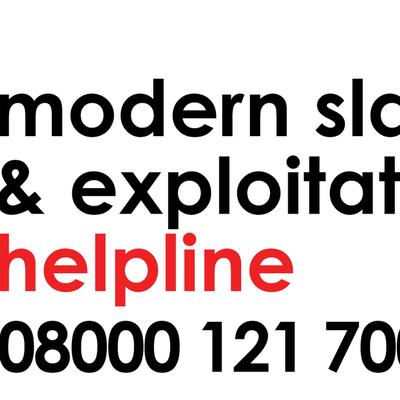
For more information about
Programme Challenger please email:
info@programmechallenger.co.uk
In an emergency, where there is a
threat to life or a crime in progress,
always phone 999
Partners recognised at the time that our understanding of these criminal activities was not fully understood and that a significant proportion of these crimes were hidden and went un-reported. The core functions of the Modern Slavery Coordination Unit are to provide the highest level of care for victims once they have been identified, to raise awareness with the public and professionals about the various forms of slavery, trafficking and exploitation, encourage people to report any concerns they have in relation to these issues, improve our understanding of Modern Slavery within Greater Manchester through intelligence collection and develop operational strategies with partners to respond to the problem.
Within Greater Manchester Police there are 50 modern slavery tactical advisors, who provide advice, support and expertise to police officers across the force in relation to modern slavery. This support includes help with the legislation, the National Referral Mechanism, applying a victim-focused approach, effective disruption tactics and writing a tactical advice documents for investigation teams. There is an advisor on cover 7am to 11pm 7 days a week. In addition, there are approximately 120 police Victim Liaison Officers who have had a two day modern slavery course on victim focus, victim support, the National Referral Mechanism and signposting victims for further support. They are also a single point of contact for any ongoing court cases. Every report of a potential modern slavery victim has a Victim Liaison Officer assigned to the incident.
The Modern Slavery Coordination Unit supports all partner agencies in notifying the Home Offce and making a referral to the National Crime Agency through the National Referral Mechanism when a person has been identified as a victim of trafficking. The Modern Slavery Coordination Unit works closely with third sector organisations to ensure victims of trafficking and slavery receive all the support they need, particularly safe accommodation, material assistance and access to counselling and therapeutic support. Greater Manchester is also one of three pilot sites for the Home Office’s Independent Child Trafficking Advocate scheme and by working closely with Barnardo’s in their role delivering the project, Programme Challenger aims to ensure that all child victims of trafficking receive the highest level of care and support available to them. Learning from this project and other elements of modern slavery is routinely captured and shared with government to assist in the development of national policy.
In 2016, Programme Challenger launched the “Would you?” campaign to raise awareness of modern slavery and trafficking with all communities in Greater Manchester. The campaign seeks to educate the public about the various types of slavery and trafficking that exist which the public may unwittingly come into contact with as part of their everyday lives. Examples include car washes, nail bars, massage parlours, restaurants, take aways, construction sites and factories.
Download our Strategy Document here

The aim of this section is to provide an insight to professionals and the public as to the modern slavery picture in Greater Manchester
Read More
Referrals into the Sophie Hayes Foundation Remote Employability Programme for women survivors of trafficking are now open for an October 2020 start.
Read More
The Modern Slavery Helpline and Resource Centre provides statutory agencies and businesses access to information and support on a 24/7 basis.
Read More
In January 2016, STOP THE TRAFFIK were commissioned to establish a modern slavery network for Greater Manchester. This network
Read More
Click here to learn more about identifying victims of trafficking and modern slavery and the support available to victims
Read More